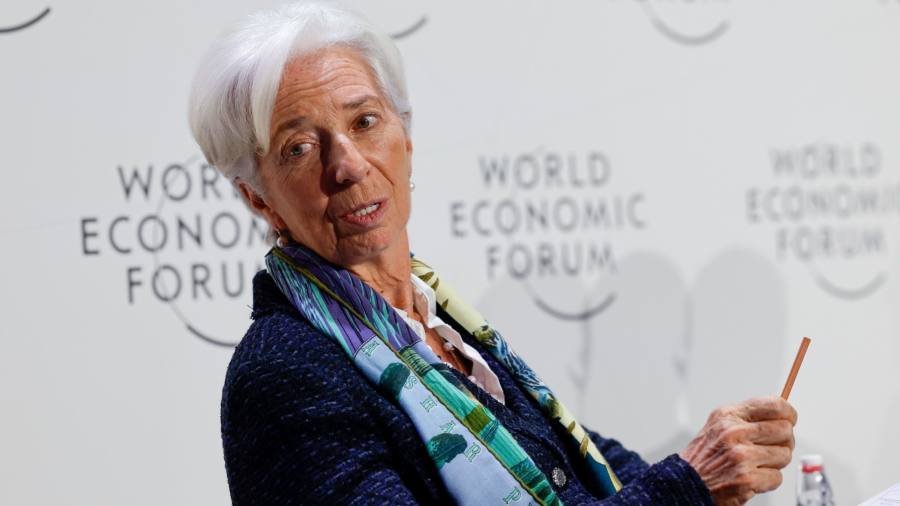[ad_1]
Wall Street stocks tumbled on Thursday after souring US economic data stoked fears of a coming recession, even as the figures lifted the chance of a smaller rate increase when the Federal Reserve meets at the end of the month.
The US benchmark S&P 500 and the tech-heavy Nasdaq Composite both declined 0.7 per cent in early New York trading, following on from sharp falls for European stocks earlier in the day.
December data showing weak US retail sales and a steep decline in industrial production drove the S&P 500 down 1.6 per cent on Wednesday, reversing a trend of equity markets rising despite signs of slowing economic growth.
Confident that inflation has peaked, investors are nevertheless growing increasingly concerned about the depth of an expected recession and the effects of the Fed’s aggressive monetary tightening campaign on company profits. Microsoft’s decision to cut 10,000 workers only added to the gloom, while consumer goods conglomerate Procter & Gamble’s shares slid after reporting a slowdown in net sales.
“Bad news is bad news” again said Charlie McElligott, a strategist at Nomura. Noting US equities’ relatively strong start to 2023 against an uncertain macroeconomic backdrop, Premier Miton’s chief investment officer Neil Birrell joked he was “worried we’ve had the entire year’s returns in the first two weeks”.
The US labour market remains tight, however, even as other parts of the economy slow. Initial claims for unemployment benefits fell to 190,000 in the week ending January 14 from 205,000 in the previous week, data released on Thursday show. Economists polled by Reuters had expected 214,000 claims.
Slowing economic activity elsewhere exacerbated “concerns on growth and corporates’ earnings for equities investors” but reinforced “the disinflation narrative” for bond investors, according to analysts at JPMorgan.
US Treasuries, which had rallied across the board in the previous session, sold off on Thursday, with the yield on the benchmark 10-year note rising 0.02 percentage points to 3.39 per cent. Bond yields move inversely to prices.
Softer than expected retail sales and industrial production also weakened the dollar, which slipped 0.2 per cent against a basket of six currencies as traders upped their bets that the Fed would raise rates by a quarter of a percentage point in February, after a 0.5 percentage point move in December.
Federal Reserve Bank of Dallas president Lorie Logan appeared to back a 0.25 percentage point rate rise next month while warning investors not to get ahead of themselves.
“A slower pace could reduce near-term interest rate uncertainty, which would mechanically ease financial conditions,” Logan said on Wednesday. “But if that happens, we can offset the effect by gradually raising rates to a higher level than previously expected.”
In Europe, the regional Stoxx 600 index, which has risen for six consecutive sessions, fell 1.4 per cent. Germany’s Dax lost 1.5 per cent and London’s FTSE 100 shed 1 per cent, dragged down by European Central Bank president Christine Lagarde’s pledge to “stay the course” on interest rate rises. The hawkish comments sent German and Italian government bond yields surging.
Elsewhere, Hong Kong’s Hang Seng index fell 0.1 per cent and China’s CSI 300 added 0.6 per cent, with both indices up sharply in recent months thanks to Beijing’s reversal of strict zero-Covid policies in December.
Prices for Brent crude, the international oil benchmark, rose 0.4 per cent, erasing earlier losses, to hit $85.72 a barrel.
[ad_2]
Image and article originally from www.ft.com. Read the original article here.

